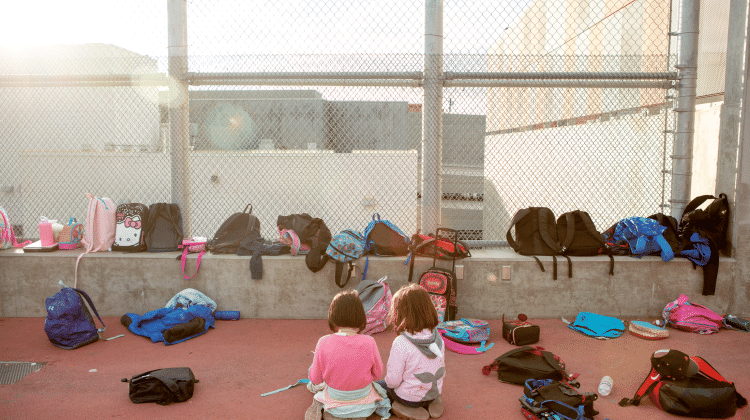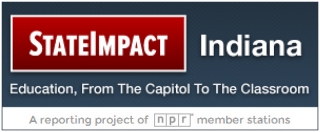
Indiana Higher Education Commissioner Teresa Lubbers says the state may have to deal with increased requirements for educators who teach dual credit courses.
The Statehouse FileINDIANAPOLIS -- A panel of educators, lawmakers and higher education officials met Tuesday to discuss how to deal with an impending policy change that one K-12 leader said will "decimate" the dual credit options for high school students.
The panel is trying to find solutions and calculate the impact of the new rules, such as how many teachers would be required to hold a master’s degree and acquire additional training just to continue teaching the courses for college credit. The increased requirements were approved by the Higher Learning Commission, the regional accreditor for Indiana’s colleges and universities, and expected to go into effect fall 2017.
Despite the impact on Indiana’s popular dual credit program -- more than 3,400 courses are offered statewide -- it’s unclear what power the state has, if any, to influence the Higher Learning Commission to rethink the change.
That was the general sentiment of those leading Indiana’s Dual Credit Advisory Council meeting Tuesday. The Higher Learning Commission accredits colleges in 18 other states and only a few of those states are questioning the new guidelines for faculty and those who teach dual credit.
“I am not certain at this point how open (Higher Learning Commission) is to additional contact from the state but I think we need to try,” said Teresa Lubbers, the state higher education commissioner and council co-chair. “This doesn’t come into effect until September of 2017 so we have some time. I think we need to figure out the best information we can and share that information with HLC.”
Lubbers said there are likely strategies that state colleges, legislators and K-12 leaders can take to ensure teachers remain eligible to teach college-level courses uner the new rules.
The Higher Learning Commission now requires dual credit teachers to have a masters degree and at least 18 credit hours in the subject area they teach dual credit. There are some exceptions for teachers in the technical subjects, such as construction or welding.
Currently, Indiana policy requires teachers to have the same credentials for on-campus faculty or a teaching plan approved by the college granting the credit.
Lubbers said the groundswell of support of dual credit in the state will likely result in ideas on how to accelerate the completion of a master’s degree for teachers and provide financial incentives for teachers to earn the degree. Dual credits have grown by an average of 110 percent in the past three years at all state public colleges.
But first, the Lubbers wants to know how many of the nearly 3,000 Indiana educators who teach dual credit would be impacted by the new requirements. Every public high school in Indiana is required to offer at least two Advanced Placement and two dual credit courses
Todd Bess, the executive director of Indiana-Association of School Principals, said he’s heard from school leaders that up to 90 percent of teachers would no longer qualify to teach dual credit under the new rule.
“Their concerns are this will decimate their dual credit offerings and their real impact is students won’t be earning dual credit for their college opportunities,” he said.
Bess and others voiced concern that HLC’s accreditation changes would push back gains in Hoosier students enrolling and completing college.
“If don’t find great solutions here and follow the HLC regulations, we are going to see a higher percentage of the kids who earned neither AP or dual credit,” he said.
Students who earned AP and dual credit courses attended college at a rate of 93 percent, according to state data on students who graduated high school in 2012. Just more than 50 percent of students who earned neither type of credit attended school and of those students, 40 percent required remediation.
Bill Konyha, executive director of Indiana Office of Community and Rural Affairs, said if the new requirement sticks, many teachers won’t pursue it because rural district won’t be able to help cover tuition costs.
Changes in 2011 to the collective bargaining law reduced the amount of additional pay a teacher can earn based on their level of education. Though a corporation can chose to incentivize teachers for holding or seeking additional degrees.
“If we can’t provide the same educational experience as the urban areas, we are going to fall behind,” Konyha said of the counties with fewer than 50,000 residents.
Other ideas were discussed during the meeting:
- State Sen. Dennis Kruse, R-Auburn, suggested rural schools could share a qualified teacher or college professors could teach via video to students in high school classroom.
- Drafting a letter to the commission -- from Lubbers and panel co-chair State Superintendent of Public Instruction Glenda Ritz -- and ask them to rethink the new requirements.
But one idea shot down quick was for Indiana to leave the Higher Learning Commission -- a move that would jeopardize college's access to financial aid among other problems.
“You can’t pass a law that says you are going to bypass accredidation,” Lubbers replied.
The panel meets again Nov. 23.
Contact WFYI education reporter Eric Weddle at eweddle@wfyi.org or call (317) 614-0470. Follow on Twitter: @ericweddle.
 DONATE
DONATE





 View More Articles
View More Articles





 Support WFYI. We can't do it without you.
Support WFYI. We can't do it without you.